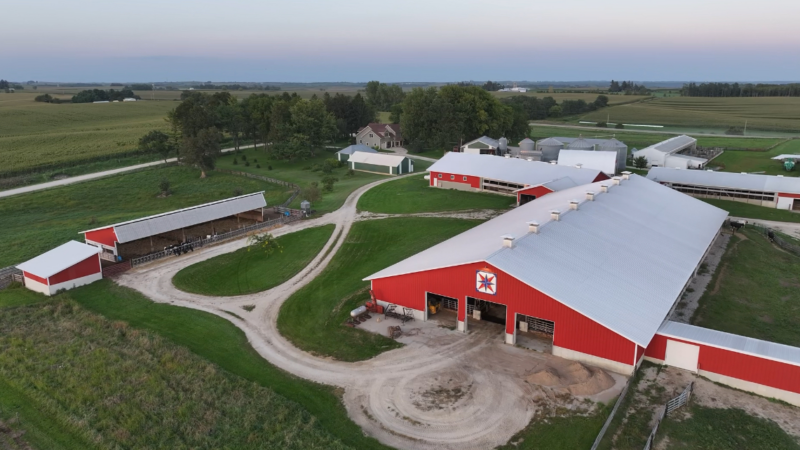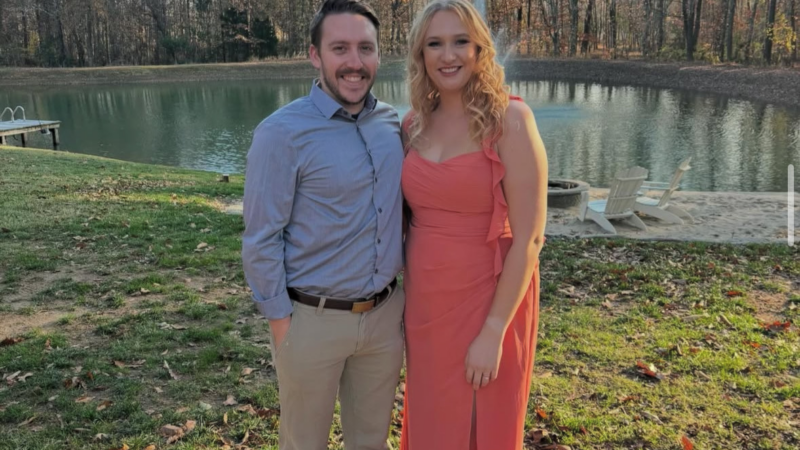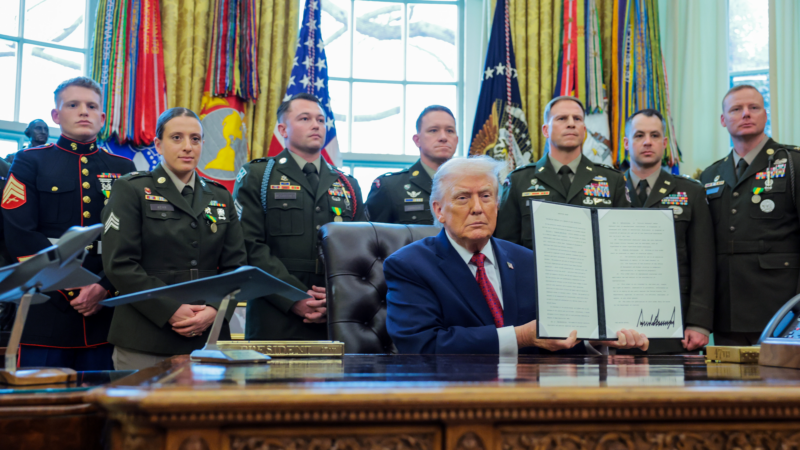If Planet Nine is out there, this telescope might actually find it
Mike Brown is convinced that beyond Neptune, at the far reaches of our solar system, there’s an unseen giant planet.
“This is the 5th largest planet in our solar system, lurking out there, waiting to be found,” the Caltech astronomer says.
For about a decade, he and other researchers have been trying to prove that the so-called “Planet 9” exists.
So far, the only evidence has come from some oddities in the orbits of small Pluto-like bodies. The cosmic weirdness could be explained by the gravitational effects of a large planet.
But no one has actually spotted Planet 9. It’s so far away, it would be a faint object, and the swath of sky that researchers have to search is huge.
Now, though, researchers are close to finally starting up a powerful astronomical facility that’s on a mountaintop in Chile. The NSF-DOE Vera C. Rubin Observatory, a joint project of the National Science Foundation and the Department of Energy, has been under construction for years — and later this month workers are expected to finally start the commissioning and fine-tuning of its instruments.
Brown says he couldn’t have asked for a better telescope to hunt his celestial quarry.
“If you were to hand me a big wad of cash and say, ‘Go build a telescope to go either find this Planet 9 or find the best evidence possible for Planet 9,’ I would probably go and build the Vera Rubin Observatory,” says Brown. “It really is a telescope that is perfectly suited for making the next step.”
The best bet
Bob Blum, Rubin’s director of operations, says the observatory will survey almost the entire southern sky every night, taking pictures as it goes with the biggest digital camera in the world.
“The telescope itself is a big telescope, so it can see really faint objects,” says Blum.
What’s more, the observatory’s images will feed into computer systems that will constantly be comparing the new images to previous ones. That will allow the observatory to detect anything that changes — like, say, Planet Nine moving across the sky.
“If it’s there, we should be able to find it, pretty easily,” says Blum.
The observatory will be a game-changer in the hunt for Planet 9, agrees Scott Sheppard of Carnegie Science, one of the researchers who first suggested that a big planet could be the culprit that was messing with the orbits of some small solar system bodies.
“Vera Rubin is our best bet to find it in the next few years, probably,” says Sheppard. “It’s going to turn over more rocks than anyone has turned over before.”
If Planet 9 is real, this observatory has around a 70 to 80 percent chance of finding it, he estimates, adding that it’s not a sure thing because there are so many uncertainties.
“We don’t know the size of the planet. We don’t know the reflectivity of the planet. We don’t know the distance of the planet,” says Sheppard. “Those three things will determine how bright this planet actually is.”
If Planet 9 is on the smaller side, dark, and really far away, he explains, “it’s going to be on the edge of Vera Rubin detection, and Vera Rubin may not find it.”
But even if it doesn’t spot Planet 9 directly, the Rubin Observatory might find some more minor planets, ones whose orbits might be affected by Planet 9. And that could provide additional evidence that such a giant planet really exists.
Up until now, says Sheppard, astronomers haven’t found enough small, far-off minor planets with orbits that can be analyzed for evidence of Planet 9’s gravitational influence, so he thinks the existence of this planet is an open question.
“The statistics just aren’t there to definitively say yes or no,” he says.
Getting serious
Brown, meanwhile, says he is “extraordinarily confident” that Planet 9 is out there.
Over the years he’s tried to remain skeptical, he says, but was finally convinced by an obscure gravitational effect that he and some colleagues noticed and reported on about a year ago.
“If you talk to 20 different astronomers, you’ll get 20 different takes on how confident they are,” says Brown. “But I just don’t see a way that the solar system can exist the way it does without there being a Planet 9.”
As this year progresses, he says, the Rubin observatory will start building up a baseline picture of the sky, and by the end of the year it should have started detecting changes and making that data available to the astronomy community.
At that point, says Brown, “we can get serious about trying to find Planet 9.”
Even if they aren’t able to actually see a new planet, he adds, the Rubin observatory should provide enough new data that it should become clear whether the tell-tale orbital patterns they’ve been seeing really hold up to scrutiny.
“I think that what Vera Rubin will definitively do,” says Brown, “is tell us whether we’re crazy or not.”
Farmers are about to pay a lot more for health insurance
Tariffs, inflation, and other federal policies have battered U.S. farmers' bottom lines. Now many farmers say the expiration of federal health care subsidies will make their coverage unaffordable.
Why do we make New Year’s resolutions? A brief history of a long tradition
One of the earliest mentions of New Year's resolutions appeared in a Boston newspaper in 1813. But the practice itself can be traced back to the Babylonians.
Judge orders new trial for Alabama woman sentenced to 18 years in prison after stillbirth
Lee County Circuit Judge Jeffrey Tickal vacated Brooke Shoemaker’s 2020 conviction for chemical endangerment of a child resulting in death. Tickal said Shoemaker's attorneys presented credible new evidence that the infection caused the stillbirth.
A little boy gave her hope for her foster daughter’s future
At a neighborhood park, a young boy noticed Natalie's young foster daughter using a walker. His reaction left Natalie with an unexpected feeling of hope for the future.
Remembering the actors, musicians, writers and artists we lost in 2025
Every year, we remember some of the writers, actors, musicians, filmmakers and performers who died over the past year, and whose lifetime of creative work helped shape our world.
In one year, Trump pivots fentanyl response from public health to drug war
Experts say Biden's focus on addiction health care saved tens of thousands of lives and slowed fentanyl smuggling. Trump scrapped Biden's approach in favor of military strikes.








